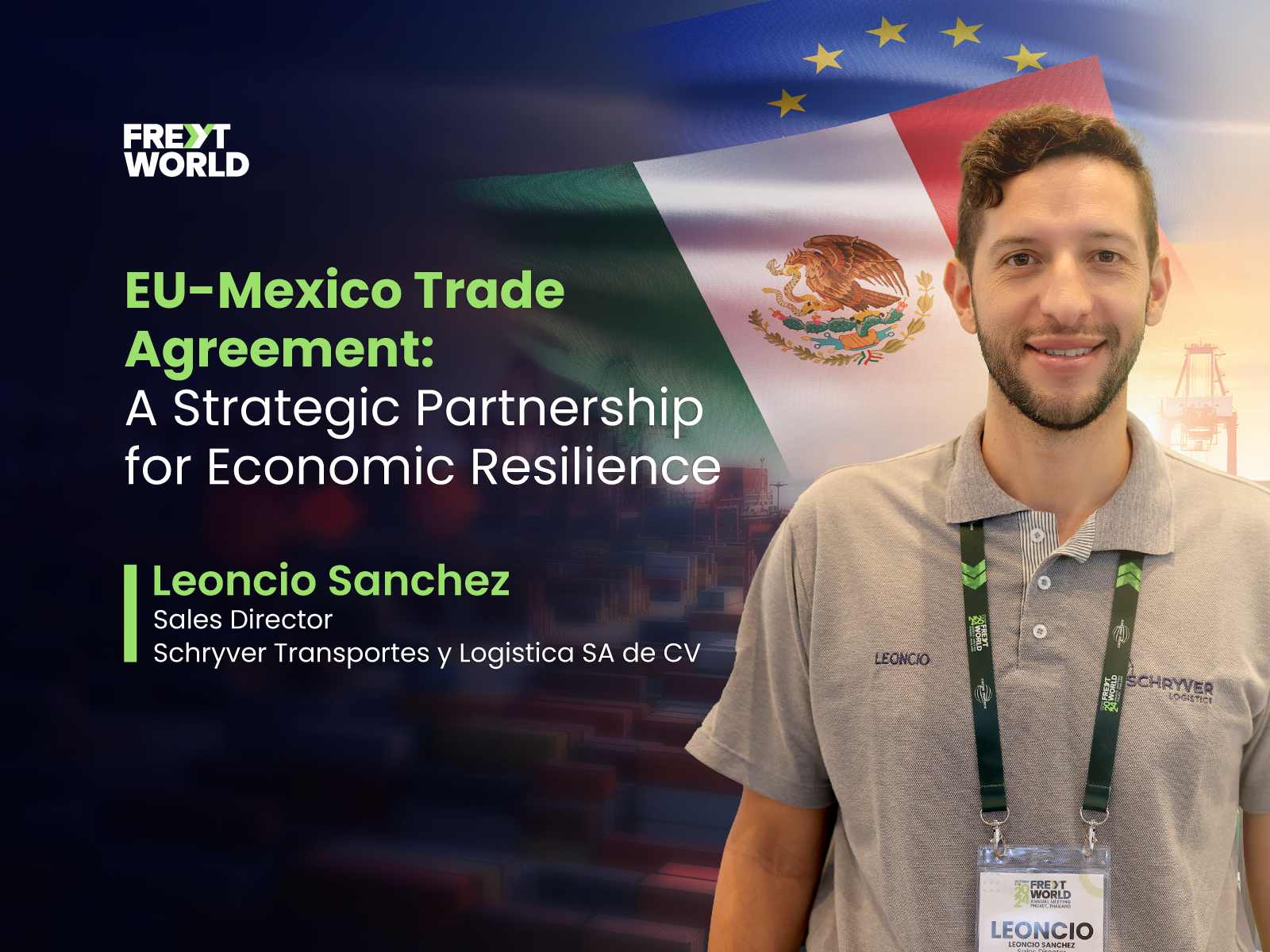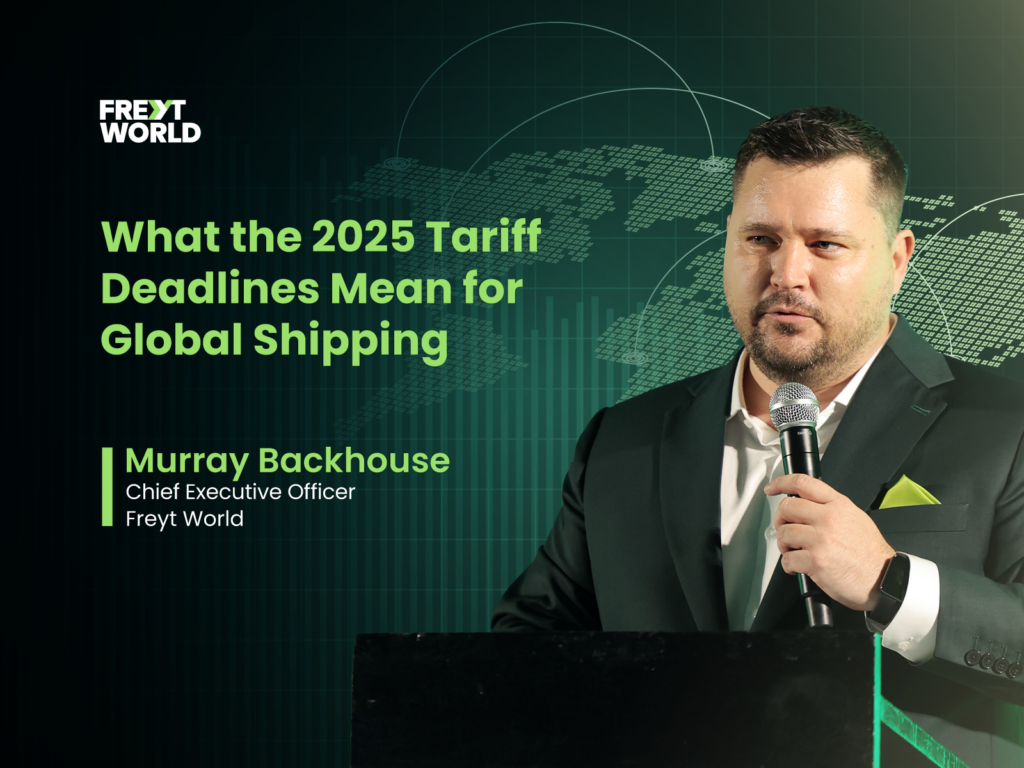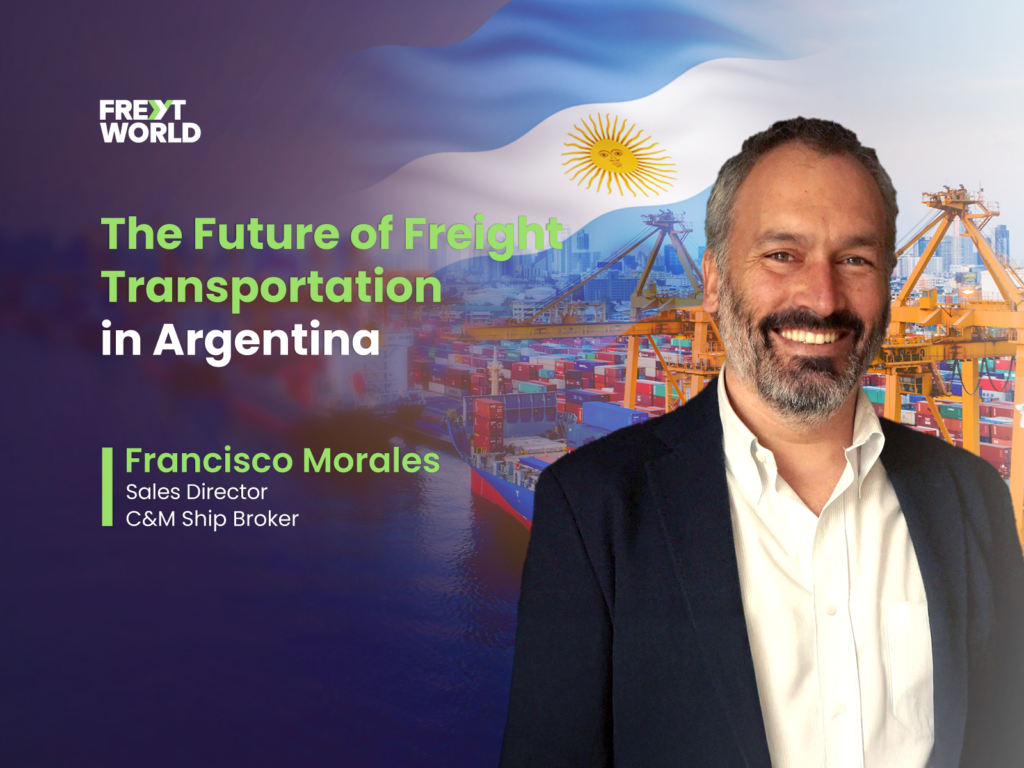By Leoncio Sanchez, Sales Director, Schryver Transportes y Logistica SA de CV

In a significant move to bolster economic security and trade resilience, the European Union (EU) and Mexico have finalized a modernized free-trade agreement. Announced on January 17, 2025, this deal aims to de-risk supply chains, secure sustainable raw materials, and address climate change.
Strengthening Trade Relations
This updated trade deal is set to enhance bilateral trade, which reached €81.7 billion in goods in 2023 and €22 billion in services in 2022. The agreement will open up EU exports in areas like financial services and telecommunications, and provide EU companies with equal access to Mexican government contracts. Additionally, it will reduce tariffs on various agri-food products, including cheese, poultry, pork, pasta, apples, jams, chocolate, and wine.
The modernized agreement introduces several key innovations in the trade relationship. European financial institutions will gain expanded access to Mexico's growing market, with simplified licensing procedures and reduced regulatory barriers. In the telecommunications sector, the agreement ensures fair competition and transparent regulatory frameworks, enabling European companies to participate more actively in Mexico's digital transformation.
Economic Impact and Strategic Goals
The EU-Mexico trade agreement is designed to support economic growth and competitiveness on both sides. By removing high tariffs, the deal is expected to significantly boost EU agri-food exports, benefiting European farmers and agri-food companies. Furthermore, the agreement simplifies standards and procedures, offering extra benefits for small businesses and ensuring a more secure supply of materials critical for the green and digital transitions.
The agreement includes specific provisions to support small and medium-sized enterprises (SMEs), such as a dedicated SME chapter that provides resources and information to help smaller companies navigate international trade requirements. It also establishes mechanisms for regulatory cooperation, reducing duplicative testing and certification requirements that often burden smaller businesses.
Sustainability and Innovation
Environmental protection and sustainable development feature prominently in the agreement. Both parties have committed to implementing the Paris Agreement and cooperating on climate change initiatives. The deal includes provisions for sustainable management of forests, fisheries, and biodiversity, along with measures to promote renewable energy and clean technologies.
In terms of innovation, the agreement strengthens intellectual property protection and includes new provisions for digital trade and e-commerce. It establishes frameworks for data protection while facilitating cross-border data flows, essential for modern business operations.
Navigating External Risks
The backdrop of this agreement is marked by aggressive trade policies from the U.S. administration. This comes at a crucial time as Mexico faces 25% tariffs from the US, announced on February 1, 2025. These tariffs are expected to ripple through the EU and other nations, prompting new trade opportunities and agreements. These tariffs have prompted the EU and Mexico to solidify trade relations and seek new opportunities against U.S. protectionism. Mexico is exploring trade partnerships with countries like the United Arab Emirates and Brazil to diversify its portfolio.
Investment and Market Access
The agreement significantly improves investment conditions through enhanced protection standards and a more transparent dispute resolution system. It eliminates investment barriers in key sectors and provides legal certainty for investors on both sides. European companies will benefit from improved access to Mexico's government procurement market at federal and state levels, creating new opportunities in sectors such as construction, healthcare, and transportation infrastructure.
Looking Ahead
The EU-Mexico trade agreement represents a strategic effort to enhance economic security and resilience in the face of external threats. By fostering stronger trade ties and reducing U.S. dependency, the EU and Mexico navigate global trade complexities better. This agreement underscores international cooperation's importance and sets a precedent for future sustainable and inclusive trade negotiations.
The implementation of this agreement is expected to begin in early 2026, following ratification procedures on both sides. Both parties have established joint committees to oversee the smooth implementation of the agreement and address any challenges that may arise during the transition period.
Freyt World Blog Contributor
Freyt World is a global logistics network uniting members from around the world. Our mission is to revolutionize global logistics through collaboration and innovation. Our platform goes beyond networking, enabling members to excel and grow together, featuring articles by logistics professionals for their peers. This series will cover industry-relevant issues and news, providing valuable insights for professionals in the field.



